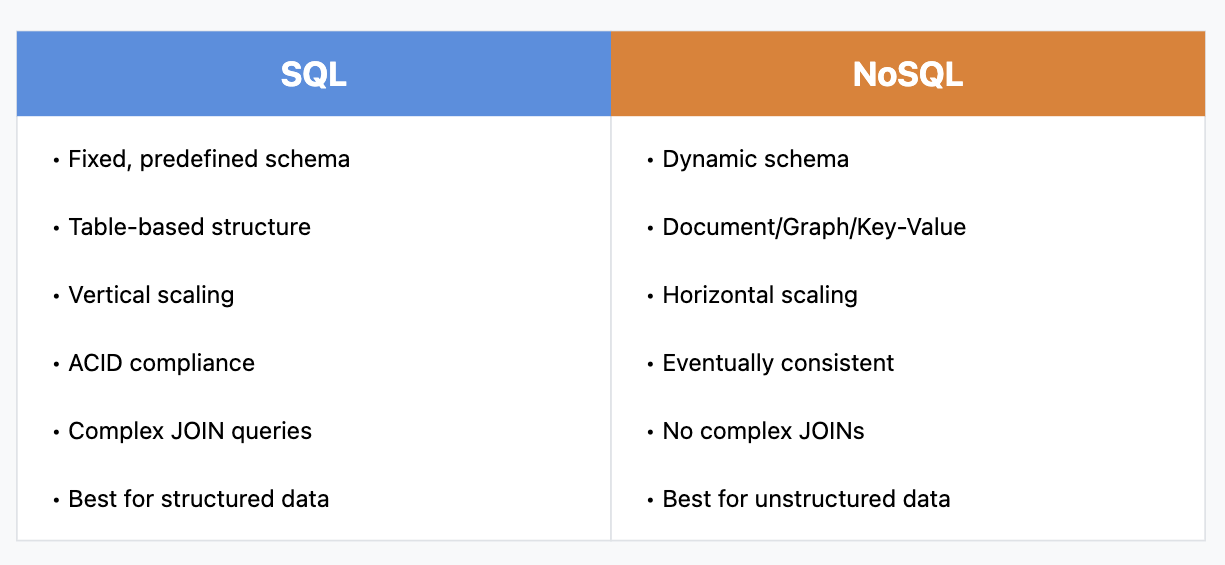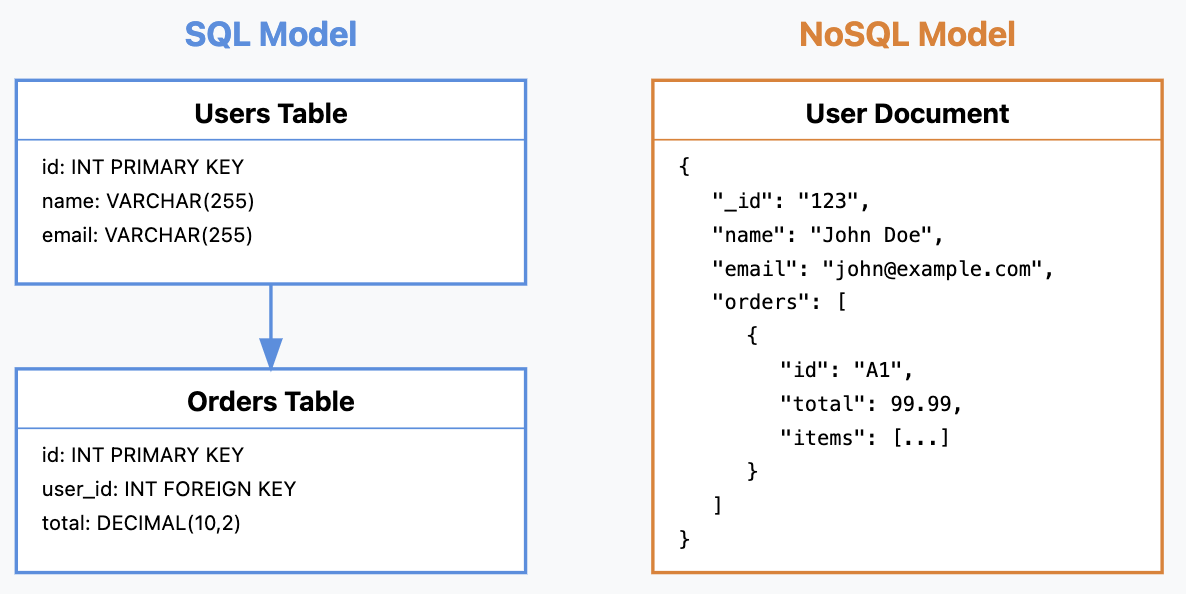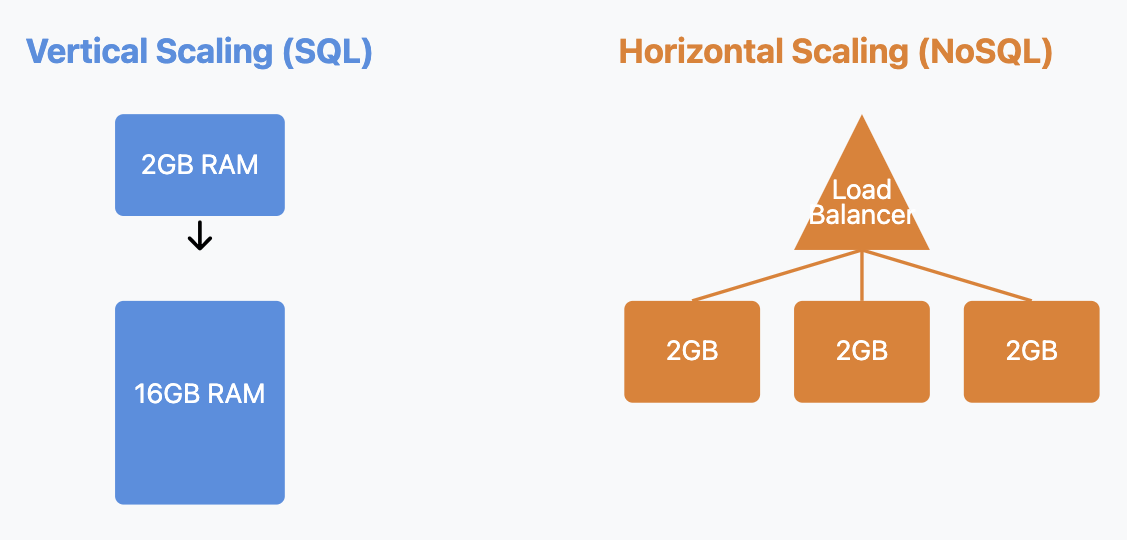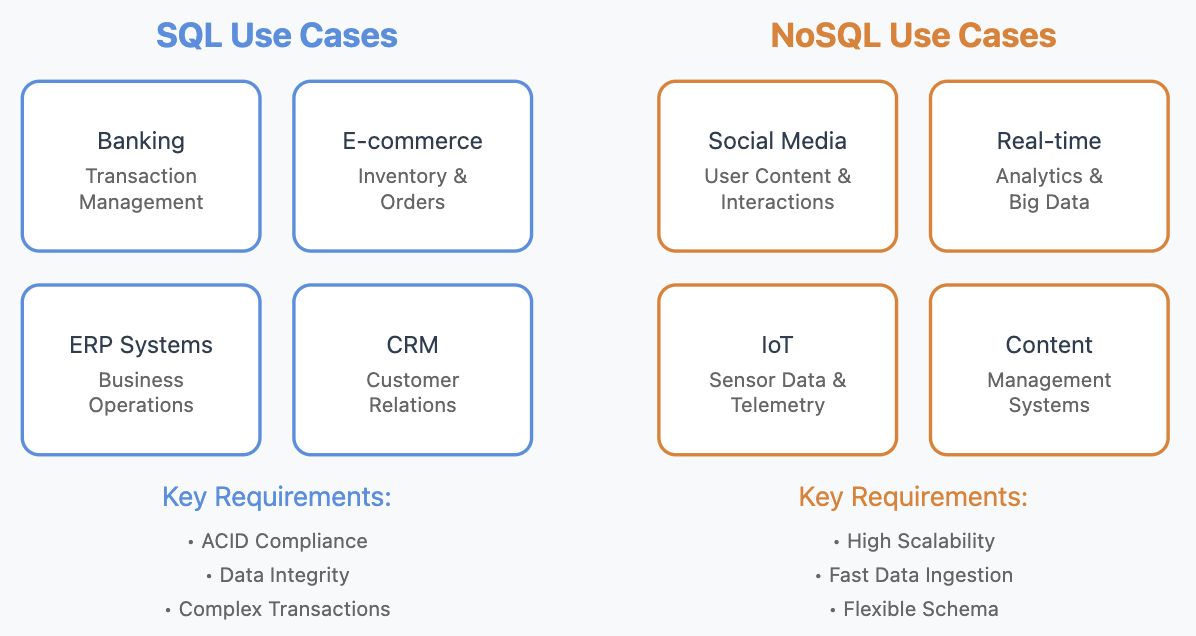When choosing a modern database for your application, a critical decision is selecting between SQL (relational) and NoSQL (non-relational) databases. Both have unique strengths, and your choice will significantly impact performance, scalability, and data management. This guide will break down the key differences, helping you decide which type of database best suits your needs.
What is Relational Database(SQL)?
SQL (Structured Query Language) is a standardized language used to manage relational databases. It’s ideal for applications that require complex queries and consistent data models. SQL databases use a predefined schema, meaning the data structure is determined before any data is added.
Popular Relational Databases:
- MySQL – Open-source, widely adopted, and highly reliable.
- PostgreSQL – An advanced, open-source hybrid SQL/NoSQL database with strong ACID compliance.
- Oracle – A commercial solution with robust support for enterprise workloads.
- Microsoft SQL Server – A feature-rich commercial database, great for businesses using Microsoft technologies.
What is Non-Relational Database?
NoSQL stands for "Not Only SQL." Unlike relational databases, NoSQL systems allow for flexible, dynamic schemas, making them perfect for applications with unstructured or rapidly evolving data. These databases can handle various data formats, including documents, key-value pairs, and graphs.
Popular Non-Relational Databases:
- MongoDB – A widely used document-based database with flexible schemas and excellent horizontal scalability.
- Cassandra – Known for handling massive amounts of data across distributed systems with high availability.
- Redis – A lightning-fast, in-memory key-value store.
- Neo4j – A graph database designed for complex relationships and graph-based queries.
Key Differences Between Relational and Non-Relational Databases

When to Use Relational vs. Non-Relational
Use Relational databases when:
- Your data is highly structured and consistent.
- You need complex queries or multi-row transactions.
- Ensuring data integrity is critical (ACID compliance).
Use Non-Relational databases when:
- You’re dealing with unstructured or rapidly changing data.
- You expect high scalability and need to handle large traffic volumes.
- You want flexible, fast development without rigid schemas.
Data Model Comparison:

Scaling Approaches

Common Use Cases:

Final Thoughts: Choosing the Right Database
There’s no universal answer to whether Relational or Non-Relational is better—it all depends on your project’s specific requirements. If you need robust transactional support and well-defined data relationships, SQL is likely the better choice. If your data is unstructured, or you need high scalability and flexibility, NoSQL could be the way to go.
By understanding the differences, strengths, and use cases of SQL and NoSQL databases, you’ll be better equipped to make a smart, informed decision for your next project.
Learn More
- Unit Testing for Express API: A Step-by-Step Guide
- A practical guide to data collection with OpenTelemetry, Prometheus and Grafana
- Flask and SQLAlchemy: Better Data Management
Please let me know if there's anything else I can add or if there's any way to improve the post. Also, leave a comment if you have any feedback or suggestions.

Discussions